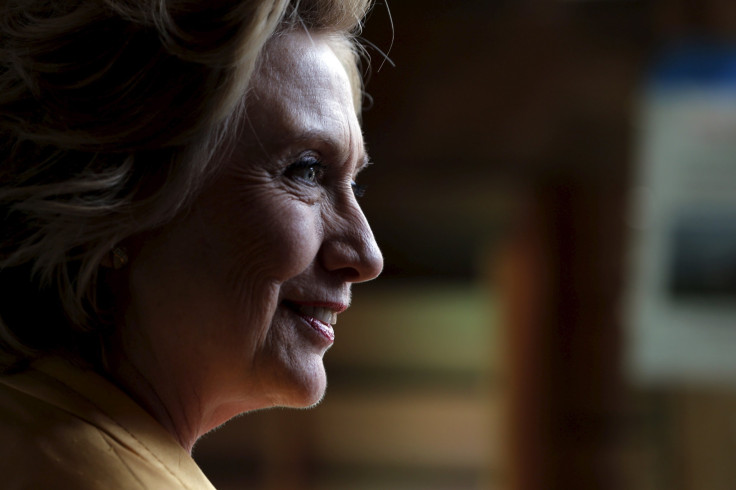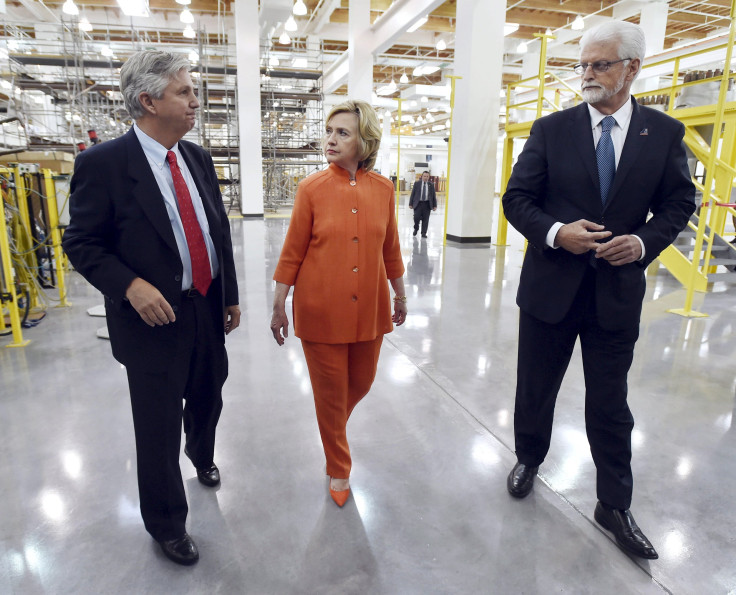Election 2016 And The Economy: Should Democrats Be Concerned About China's 'Black Monday' Market Meltdown?

Politically speaking, then-U.S. Sen. Barack Obama seemed to have had an important stroke of good luck at the same time that the rest of the country received quite the opposite. On Sept. 15, 2008, seven weeks before voters were to decide between Obama and U.S. Sen. John McCain for whom to elect into the White House, financial services firm Lehman Brothers declared bankruptcy. The market tumult that resulted from the largest bankruptcy filing in U.S history, including and especially the so-called great recession, undoubtedly weighed heavy on the minds of voters when they cast their ballots less than a month later in favor of Obama and the Democratic Party.
While the 2016 primary season won't start for another half a year, and the general election is more than a year and a half away, the recent market decline could have lasting effects on voter preferences should a worst-case scenario become a reality with global markets continuing to free fall into another recession. Considering those potential circumstances, the aftereffects would likely all but spell out a loss for whomever ultimately snags the Democratic nomination.
"The economy is already flirting with recession right now. It’s not there, but it’s a little too close for comfort,” James Rickards, a best-selling author and expert on economic and political risk, told Politico. “And if [Janet Yellen, the chair of the Board of Governors of the Federal Reserve] hikes rates in a weak economy, it’s going to start an emerging markets crisis like we saw in 1997. That would absolutely kill Hillary Clinton, Joe Biden or any other Democrat. They cannot win in that scenario.”
Yellen told Congress in July that the Fed was likely to raise interest rates if the economy continued to show strong growth and low unemployment figures were met.
Economists seem to mostly agree that what's happening right now in the markets isn't as severe as the 1997 Asian financial crisis that wiped out the value of 70 percent of several emerging markets and threatened the U.S. economy. That's good news for whomever wins the Democratic Party's presidential nomination, even though Democrats in 1998 managed an unexpected upset against a confident Republican Party that thought it was going to clean up that year.

The economy isn't always a perfect guide to who is going to win and lose in the next election. This is especially true when the situation isn't completely dire. President Jimmy Carter's time in office was cut short following a Dow industrial fall. However, his successor, President George H.W. Bush wasn't able to keep a firm grasp on the presidency, either, in spite of an improving economy.
For incumbent presidents overall, the performance of the economy does tend to be a good indicator of reelection chances. Of the top five presidents, judged by strength of the economy while they were in office, just one has lost reelection. For the bottom five, three lost their reelection bids.
Right now, the tenuous state of the economy has mostly had an impact on what 2016 candidates are saying about China. Real estate mogul Donald Trump, the Republican Party front runner, declared that Asia and the U.S. markets were too connected and said he would rather treat the president of China, Xi Jinping, to a McDonalds Big Mac instead of a state dinner during his upcoming visit to the States if he were president. Wisconsin Gov. Scott Walker has demanded the visit be canceled altogether. New Jersey Gov. Chris Christie has used the opportunity to blame American debt for the problems with China's stock market.
In other words, even if the American economy doesn't feel long-term bruising, it could still have an impact on the upcoming elections. Americans have been reporting quite a bit of anxiety around the economy lately, which could be exacerbated by the market slump, according to the Wall Street Journal. That means the lasting impacts on voters could persist and be more psychological than based on the actual performance of the market.
That anxiety is likely the reason that non-politician candidates like Trump and Dr. Ben Carson have been performing so well. Still, even if and when the economy recovers, China's market meltdown this week could drive down Democrats' polling numbers going into November 2016.
Follow me on Twitter: @ClarkMindock
© Copyright IBTimes 2025. All rights reserved.






















